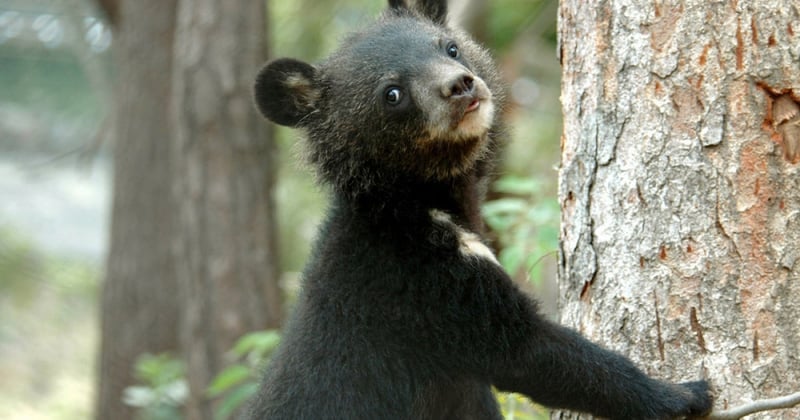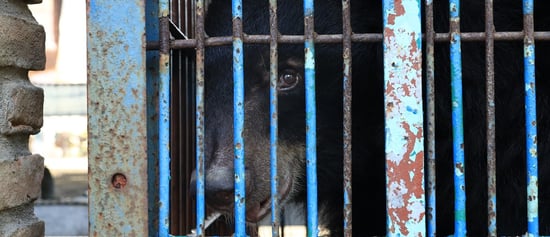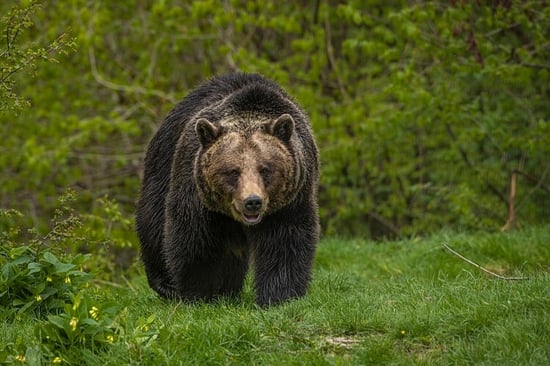
South Korea takes steps to end cruel bear bile industry, following our campaigning with local partners
News
Countries that keep captive bears for traditional medicine must follow this positive example to end the captive breeding of bears for their bile
South Korea has taken landmark steps forward in ending its bear bile industry, with the completion of a government-funded programme to sterilise all captive bears used for bile.
The sterilisation programme follows 14 years of campaigning efforts in collaboration with our local partner Green Korea United (GKU), and in consultation with the South Korean Government and bear owners.
The programme will prevent any new bears from entering the industry, with the bears in the industry today the last to suffer for their bile.
Changing attitudes to protect animals
Many South Koreans have supported our lobbying for better protection for bears.
A landmark agreement was signed between the Government of South Korea and the Bear Farmers Association of South Korea in 2014, offering a voluntary exit plan for bears farmers. The recently completed sterilisation programme is actively encouraging bear farmers to stop the breeding of new bears for the industry.
‘A significant victory for wildlife’
Gilbert Sape, our head of campaign for bears and traditional medicine, said: “This is a significant victory for wildlife. It sends out a clear message that it is unacceptable for governments to continue to support industries that profit from the suffering and exploitation of animals.
“South Korea’s example lays down the gauntlet to other countries in Asia, and particularly to China. There is no excuse to continue to support this industry, especially when there are humane alternatives readily available.”
A clear pathway for others
In Asia, more than 20,000 bears are forced to suffer in captivity for their gallbladders and bile, which is used in a variety of products, but primarily for the traditional medicine market. China is by far the largest producer and consumer of bear bile.
 An Asiatic black bear caged at a bear bile farm in South Korea
An Asiatic black bear caged at a bear bile farm in South Korea
Our new white paper, Ending bear bile farming in South Korea, created in partnership with GKU, sets out a clear pathway for other governments to end the bear bile industry.
In South Korea, the completion of the sterilisation programme marks the beginning of the end of the industry.
MP Jeong-Mi Lee of the Justice Party of South Korea said: "The completion of the sterilisation programme for farmed bears is a crucial milestone to reinforce animal welfare in South Korea. It will become a catalyst to effectively resolve other animal issues.”
Jeseon Bae, director of the Ecosystem Conservation Team, of Green Korea United, added: “We must ensure the outcomes of the sterilisation programme progress are monitored and enforced, and the outcome of no new bears entering the industry is strictly adhered to.”
We are committed to ending the needless suffering of bears, and have been working to protect bears for over twenty years; bringing an end to some of the worst cases of their exploitation globally.
We will continue to lobby for change until bears are no longer forced to suffer in captivity for their bile, but remain in the wild, where they belong.
There is no excuse to continue to support this industry, especially when there are humane alternatives readily available, Gilbert Sape, head of campaign for bears and traditional medicine
Traditional medicine
Every year, thousands of animals are bred in captivity or snatched from the wild to fuel the traditional medicine market.
Bear facts
Did you know there are eight species of bears including the Asiatic black bear, sloth bear, sun bear, and brown bear?

